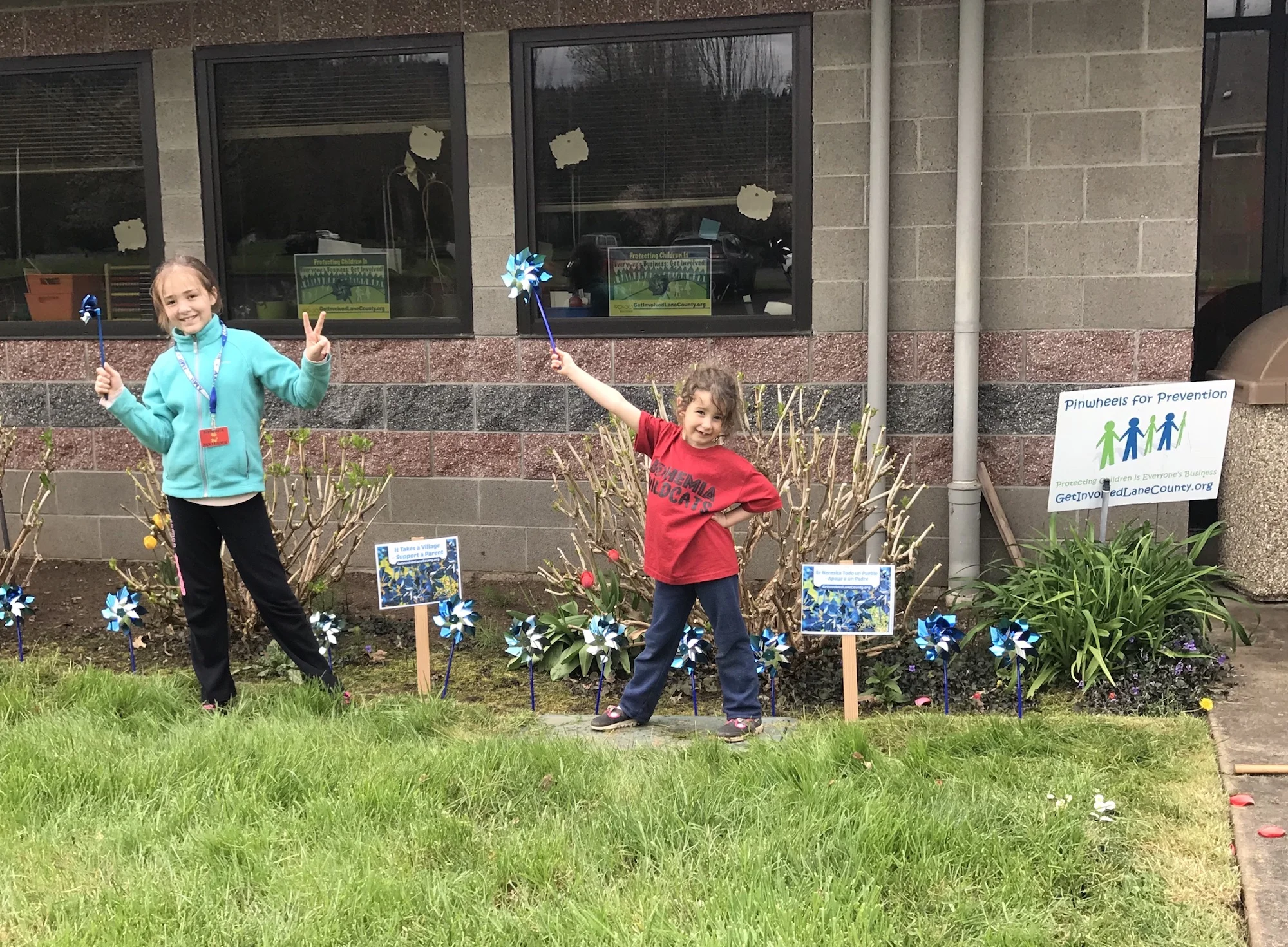About Us
K(no)w More calls on each of us to play a role in supporting families and kids.
It is 90by30’s mechanism to engage community members to keep children safe, healthy and nurtured in Lane County.
We believe that a community that “knows more” can say “no more” to child abuse and neglect.
CHILD ABUSE AND NEGLECT ARE PREVENTED WHEN:
Kids are connected.
Families are supported.
Community members take positive action.
Child abuse and neglect can be reduced by changing key things that contribute to it: isolation, stress, and uncertainty about how we as individuals and communities can help.
Lane County’s prevention effort is tackling all those things. What makes it different from previous efforts?
1. It relies on locally-made, community based solutions
Each of seven regions in Lane County has created its own prevention plan tailored to the specific needs of its community. Residents are invested in the plan and care about making it work because they were involved from Day One.
2. It empowers everyone to take action.
The key message of K(no)w More is that every individual and group has a part to play in reducing child abuse. By identifying simple actions that everyone can take, Lane County’s prevention effort r includes and reaches beyond nonprofits and state agencies and encourages all community members to participate.
3. It increases support for families.
Each region’s prevention plan is centered on the five protective factors from The Center for Social Policy’s Strengthening Families that research has shown are needed to help parents and children thrive.
Families and children are strengthened when:
Parents are strong in the face of stress. Parental resilience is all about bouncing back from tough situations and taking care of yourself when you need it. It’s managing stress and functioning well when faced with challenges, adversity and trauma.
What can you do to support parental resilience?
Support parents as decision-makers and help build decision-making and leadership skills
Help parents understand how to buffer their child during stressful times
Friends and family are supportive. Social connections make any parent feel less alone and give us a network to rely on. Strong relationships help parents feel confident, empowered, and able to reach out for help. These positive connections provide emotional, informational, instrumental and spiritual support.
What does a socially connected parent look like?
They feel respected and appreciated
They accept help from others, and give help to others
Parents have information on parenting skills and child development. Knowledge of parenting and child development helps you know what to expect as your child grows, gives you strategies to solve parenting problems, and helps you respond to your child in a positive way. Understanding these things supports your child’s physical, cognitive, language, social and emotional development.
What can you do to encourage knowledge of parenting and child development?
Model developmentally appropriate interactions with children
Provide information and resources on parenting and child development
Encourage parents to observe, ask questions, explore parenting issues and try out new strategies
Essential needs are met. Concrete supports like housing, food, and medical care are the things that every parent and child needs to be successful. Knowing where to turn when these resources are scarce can help families through hard times. When a family’s needs are met, parents are better able to minimize stress caused by challenges.
What can you do to to ensure concrete supports are in place?
Respond immediately when families are in crisis
Provide information and connections to services in the community
Children know how to manage their emotions and social interactions. When parents know how to help their kids grow in social and emotional competence, kids are happier and healthier, and parents can respond positively and warmly to situations. Children develop the ability to communicate clearly, recognize and regulate their emotions and establish and maintain relationships.
What can you do to foster social and emotional competence?
Help children develop a positive cultural identity and interact in a diverse society
Respond proactively when social or emotional development needs extra support
Model nurturing care to children
Every strategy selected in each region supports family protective factors and offers practical ways for you to participate.
Examples include :
Roots of Empathy
Roots of Empathy is an evidence-based classroom program that teaches children empathy and reduces bullying and aggression through interactions with an infant. To get involved with Roots of Empathy, email 90by30 Associate Director Sara Loveless at saral@90by30.com.
Safe Families for Children
Safe Families for Children seeks to “Make a Safer Place for Children” by enlisting and training host families to provide respite care to children whose families are experiencing a temporary emergency. To join the effort, email Angela Albin at angelaa@cafaweb.com.
Welcome Baby Bundle
The Welcome Baby Bundle is a gift to every infant born in South, West, East, and North Lane that connects families to the community and provides concrete support and resources. To get involved with the Welcome Baby Bundle, email 90by30 Associate Director Sara Loveless at saral@90by30.com.
What is 90by30?
90by30 is a community-campus partnership housed at the University of Oregon’s College of Education dedicated to making Lane County a safe, healthy, and nurturing place for children and families. Our aspirational goal is to reduce child abuse and neglect in the county 90 percent by 2030 through strong community leadership that puts local residents in charge of evidence-based prevention efforts in their own neighborhoods. We believe every person, organization, group, and entity has a role to play in keeping kids safe and supporting parents; every voice is important and every perspective has something valuable to offer. 90by30’s role is to be a mechanism by which change happens, to put the work of child safety and family support in the hands of many – a way for our community to pull together and stop child abuse and neglect before it starts.





